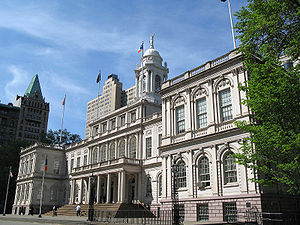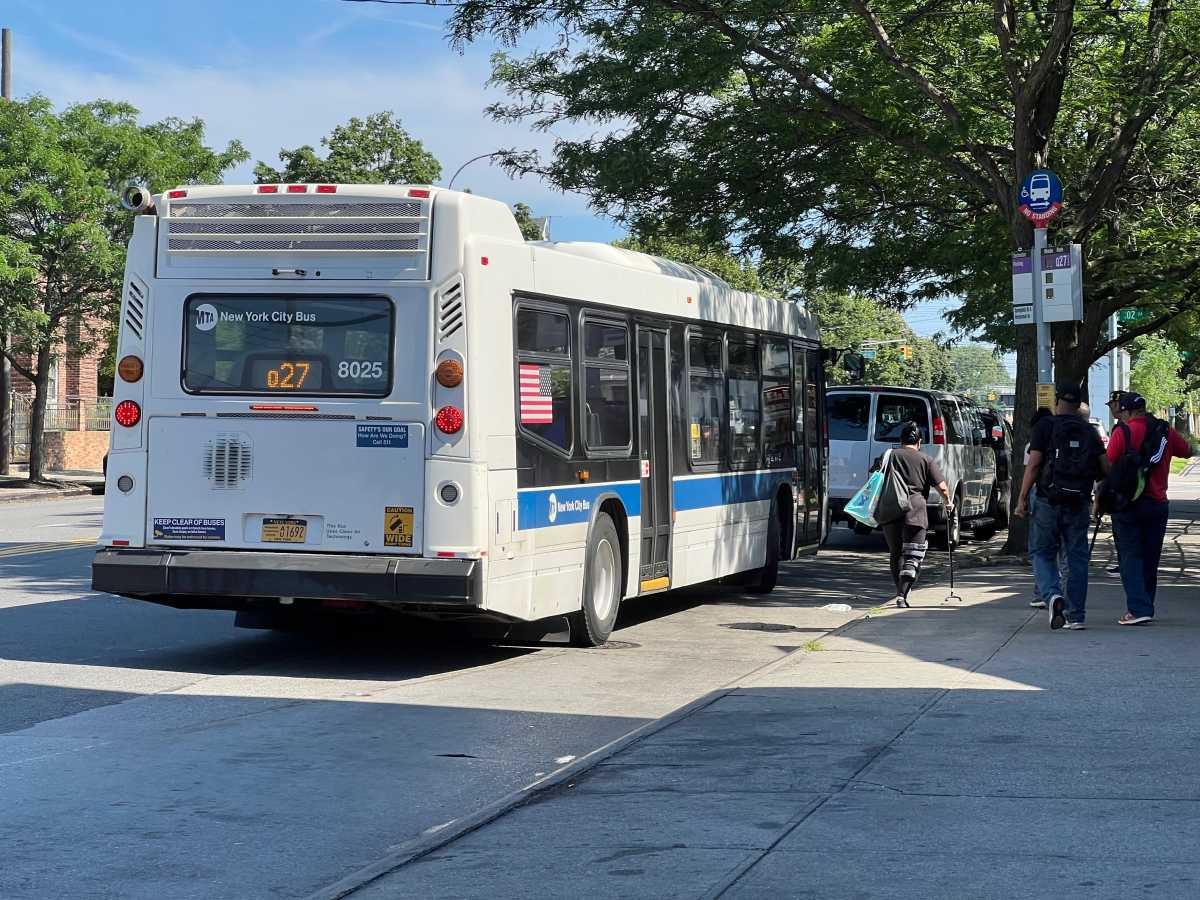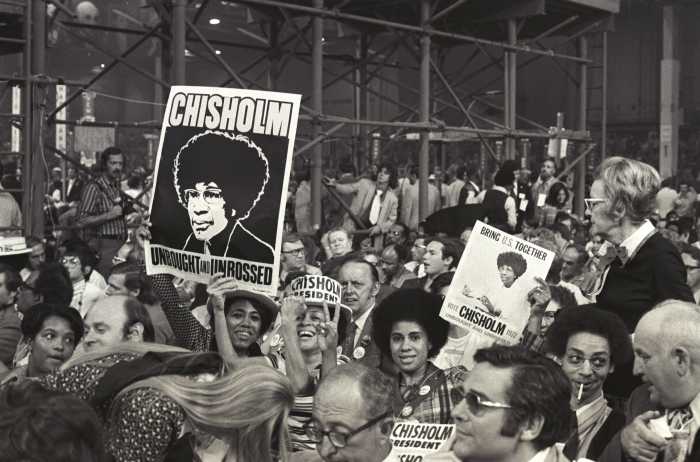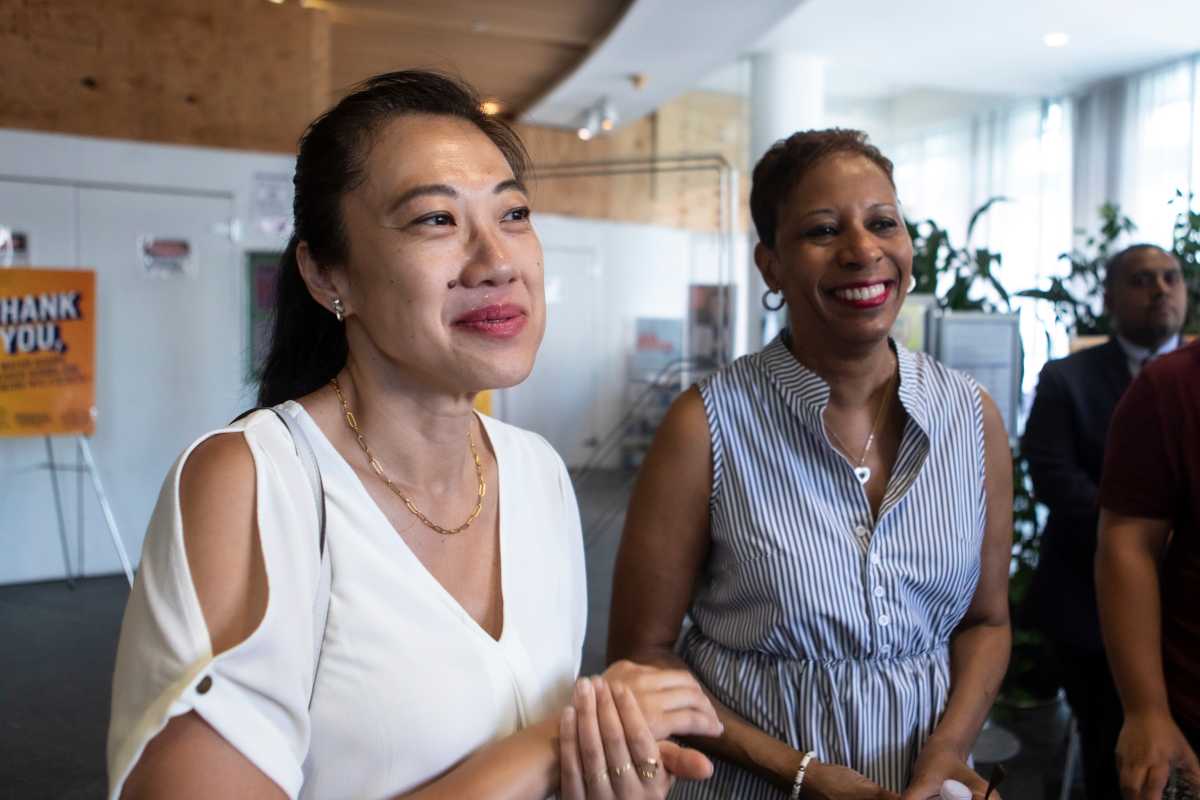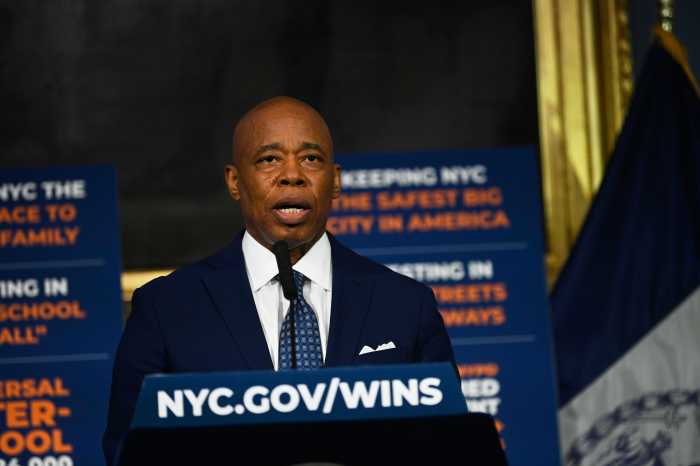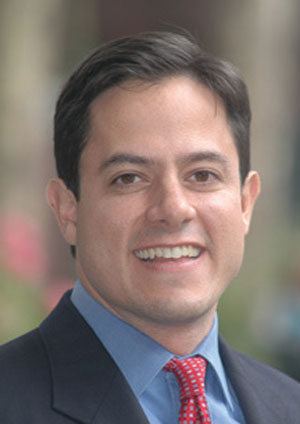
BY CHAD MARLOW | Last month, New York’s voters issued in a new era of progressive leadership for our city, electing Bill de Blasio as mayor, Scott Stringer as comptroller, and Letitia James as public advocate. But one very important piece of the puzzle remains: City Council speaker. In the next few weeks, the members of the City Council, alone, will decide who fills this critically important post. Fortunately for our three local councilmembers, while the vote for speaker is extremely important, deciding who to vote for should not be difficult. The clear choice is Daniel Garodnick.
The City Council’s role, when there has been a Republican mayor, has been easy to define. It serves as a check on mayoral power and counterweight to the mayor’s agenda. When there is a Democratic mayor, however, that role is more difficult to define. Under the last two Democratic mayors, Ed Koch and David Dinkins, the Council was largely known for renaming streets. To be sure, if the City Council does nothing more over the next four years than follow Mayor de Blasio’s progressive lead, it will not lack for accomplishments. But if the Council truly wants to maximize its value to the city, it needs to also position itself as an independent source of progressive public policy proposals. Simply put, two sources of great progressive ideas are better than one. Dan Garodnick is the only candidate for speaker who has talked about maximizing this role for the Council, and the only one who will make it a centerpiece of his speakership.
Mostly, the other candidates are engaging in a debate over who would be the most progressive speaker. This debate is a red herring. If one were to rate the progressive credentials of the major contenders for speaker from zero to 100, the scores would range from 95 to 99. In other words, with the major candidates as close as they are philosophically, it is meaningless to declare one the “most” progressive. The three Downtown local councilmembers should not allow themselves to be distracted by such a trivial distinction. Because all of the major speaker candidates are true progressives, the focus should be on electing the best “progressive-plus” candidate. The “plus” is about leadership, intelligence, strength of character, collegiality, viewing the Council as best served by an empowered membership rather than just a powerful speaker, and having the strength of character to put average New Yorkers’ needs above one’s own political ambitions. This is where the real distinctions between the candidates lie, and it is here that Garodnick stands high above the rest.
Take the recent decision on the proposed Midtown East rezoning. The rezoning would have produced three certain results. First, it would have overwhelmed the neighborhood, particularly its transportation infrastructure, to the great detriment of those who live in and around the area. Second, it would have greatly enriched numerous real estate developers. Third, it would have produced significant construction spending, which would have been a boon to the construction unions. Not surprisingly then, the real estate industry and construction unions put enormous pressure on Garodnick to approve the plan. (As the local councilmember, his vote was crucial for the plan to go forward.)
Several leading real estate industry executives even used the press to deliver Garodnick an ultimatum: Support the Midtown East rezoning or your promising political career will be in jeopardy.
Anyone who understands New York City politics knows that going up against the real estate industry and construction unions is not the safest of political moves, but Garodnick had bigger concerns. He was determined to put his constituents’ best interest first, so he bravely voted against the rezoning. As a legislator, Garodnick operates by three simple rules: Good ideas get a “yes,” bad ideas get a “no,” and nothing gets a rubber stamp. I want a speaker who will stand up for my community even when our interests are opposed by those with far more money and political power. Our local councilmembers should want the same.
Ten years ago, the New York City Pedicab Owners’ Association, recognizing that government intervention was needed to establish uniform quality and safety standards for its industry, approached the City Council and requested such regulations. I came to represent N.Y.C.P.O.A. in that effort. Numerous politicians and adversarial industries then hijacked the effort and turned it into an opportunity to grab headlines and kill the burgeoning industry. They came close, but after a five-year battle at City Hall and in the courts, N.Y.C.P.O.A. prevailed and secured the reasoned regulations it had sought from the outset. A year after the initial regulations passed, I received word that four new pedicab bills had been proposed. I immediately expected some publicity-seeking councilmember was looking to beat up on our tiny industry to garner some cheap press attention. When I learned the sponsor was Dan Garodnick, I took a deep breath.
I had known Councilmember Garodnick for some time and scoring political points by beating up a weak opponent (a move virtually trademarked by Rudy Giuliani) was not his style. When I finally saw the proposed legislation, I was very pleasantly surprised. They were not remotely harmful bills. In fact, the bills — which did things like making it easier to suspend the licenses of law-breaking pedicab owners and drivers, and creating a passenger bill of rights — were helpful. But more than that, they were thoughtful, measured, constructive and timely.
N.Y.C.P.O.A. was so convinced Garodnick was an honest broker, we decided to go well beyond just endorsing his bills. N.Y.C.P.O.A. appeared with Garodnick on the City Hall steps and told the press we had decided to put our industry’s future and its members’ livelihoods in Dan Garodnick’s hands. Not only were we supporting his bills but, sight unseen, we agreed to support any amendments he made to them during the hearing process.
Early on in this century’s first decade, I had the good fortune of meeting and befriending two individuals with political aspirations who were very similar in three respects. First, each was strongly committed to progressive political principles. Second, each exhibited exceptional leadership abilities, even during the infancy of their political careers. Third, and most important, each was highly intelligent. The first, Brad Hoylman, who became a state Senator, was a Harvard Law School graduate and Rhodes Scholar who worked as an attorney at the Partnership for New York City. The second, Dan Garodnick, was a former editor in chief of the University of Pennsylvania Law Review who worked as an attorney at the liberal-leaning law firm Paul Weiss. The impact of Hoylman’s and Garodnick’s intelligence on their job performance cannot be overstated. It’s easy for politicians to talk about progressive principles, but if they lack the ability to translate those principles into well-considered policy proposals, hot air is the most they will produce. Hoylman and Garodnick have been successful elected officials in no small part because of the highly intellectual and analytical approach they bring to addressing our city’s problems.
This is important because two approaches exist to leading the City Council as its speaker. The first is to rule from the top down, stifling other councilmembers’ independence in the name of pursuing a strength-through-unity approach to governing. The other approach is to use the power of the Speaker’s Office to empower the other councilmembers. In the latter approach, the speaker views each councilmember’s office as an ultra-local think tank for developing innovative policies to improve our city. Likewise, such speakers recognize they do not have a monopoly on great ideas. Rather, they understand that sometimes the speaker’s greatest value is in helping other councilmembers develop their ideas into solid legislation. It takes a certain confidence and self-assuredness to embrace this later approach, since there is a strong temptation to hoard the power and attention that the speakership brings. Nevertheless, as he has made clear, Garodnick favors the member-empowerment approach.
Local communities are best served by councilmembers who are empowered to propose and advance policies that address their constituents’ needs and improve their condition. Such efforts are most easily pursued when the Council speaker is not only committed to supporting each councilmember’s efforts, but to maximizing each councilmember’s potential. Only one candidate for speaker has made operating the Council in such a manner a cornerstone of his candidacy. And only one speaker candidate has consistently demonstrated he has the leadership and intellectual and interpersonal skills required to succeed in such an effort. That candidate is Dan Garodnick.
Marlow is a member, Community Board 3



